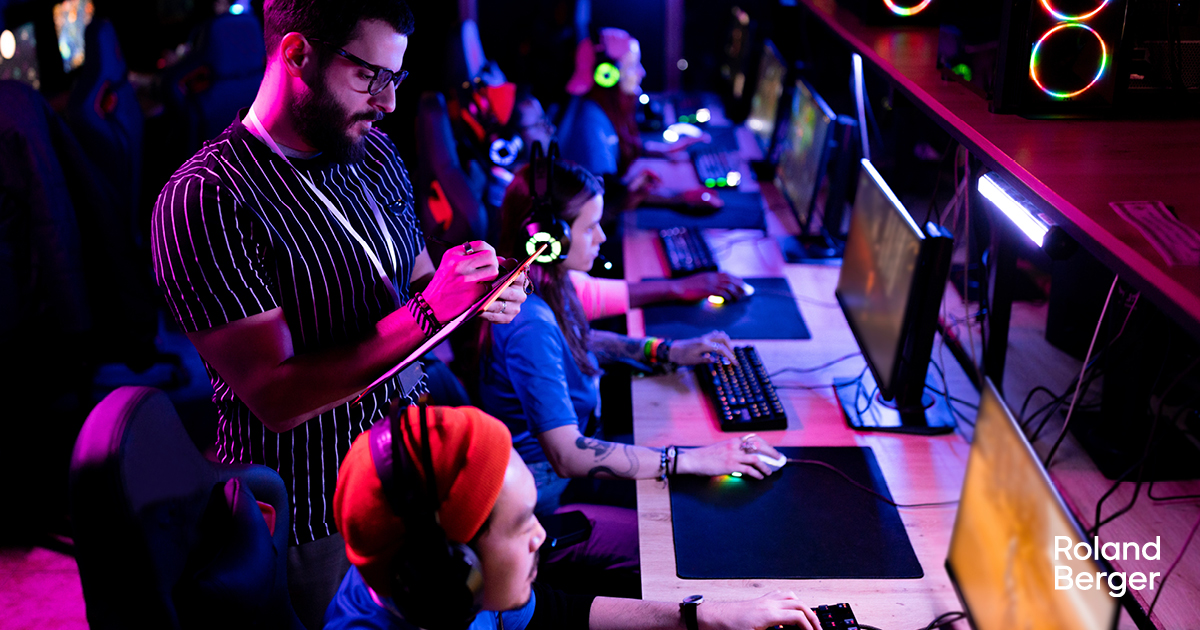From Fun to Function: The Double Role of Mobile Game and App Developers within Saudi Arabia’s Tech Economy
Picture this: You’re relaxing in a Riyadh café, getting your latte ordered via a smooth app developed right here in the Kingdom, while the other person sitting across from you is fighting dragons on a local game developer’s creation. Two atmospheres — one’s getting you your caffeine fix, the other’s pumping you up — but they both originate from the same Saudi Arabian tech pulse.
That’s the magic of how the mobile app development company Saudi Arabia and the mobile game development company are creating the country’s digital culture. They’re not merely producing products; they’re constructing lifestyles.
Why Saudi Developers Are Blurring the App/Games Line
The Kingdom’s tech sector is not only on the rise — it’s accelerating at a pace that makes your phone’s updates feel slow. Ten years ago, apps and games were considered two distinct worlds. Today, they’re blurring, with developers frequently creating in both camps.
Why? Because users aren’t thinking in silos any longer. A productivity app may be able to incorporate game-like challenges, and a mobile game can incorporate real-world rewards through e-commerce tie-ins. This “gamification” trend is drawing mobile app developers into the gaming space and vice versa.
In Saudi Arabia, there is a cultural spin to this trend. The Vision 2030 program of the country is driving the economy towards diversification, with technology and innovation being very heavy on it. This wave is being ridden by developers as they make apps and games that are locale-specific but globally competitive.
How Is the Saudi Mobile App Scene Becoming a Global Player?
A mobile app development company Saudi Arabia is no longer creating apps for domestic companies. A lot of them are now thinking global from day one. From fintech products to lifestyle platforms to health monitoring platforms, the goal is obvious — create products that speak internationally but have a Saudi identity.
What’s making them different:
- Cultural Insight + Tech Skills – Developers understand local user needs, which helps them craft apps that solve real problems for Saudi users while appealing to global audiences.
- Bilingual Development – Arabic and English interfaces are standard, increasing adoption rates.
- Innovation Incentives – App developers who strive for top-tier standards are supported by government subsidies and accelerator programs.
Saudi businesses are receiving investment from foreign investors due to their international reach and locally generated authenticity.
What’s Behind the Saudi Mobile Game Development Boom?
You might assume that the mobile game development company scene in Saudi Arabia is all about fun and games, but hold on. The scene here is booming because games are drawing on cultural storytelling, esports, and even learning.
What’s driving the boom:
- Demand Driven by Youth: Since over 60% of Saudis are under 35, smartphone gaming plays a significant role in their daily enjoyment.
- Esports Investments: Mobile games are a part of the esports ecosystem, which has seen billions of dollars spent by the Kingdom.
- Cultural Relevance: By creating games inspired by Arabian mythology, history, and culture, domestic firms are giving themselves a distinct edge in the global market.
It’s not all about entertainment; these games are becoming a tool for cultural export and soft power.
How do app and game developers spur each other’s growth?
Though they appear to be divergent courses, mobile app development company Saudi Arabia teams and mobile game development company teams tend to share talent, tools, and even revenue strategies.
Here’s how they cross-pollinate:
- Shared Tech Stacks – Game engines such as Unity are also applied to non-game apps with extensive interactive features.
- Design Expertise – The UI/UX skills of game developers improve app interfaces and make them more interactive.
- Monetization Models – Subscription and in-app models used in games are now prevalent for non-gaming apps.
All this overlap signifies that the technologies and concepts from one industry tend to inspire innovations in another.
Why Gamification Is Becoming the Secret Weapon of the Saudi Tech Industry
Gamification is not just a buzzword where it is it is a tactic. Apps all over Saudi Arabia are incorporating features of games such as leaderboards, rewards, and tracking of progress to increase engagement.
Some examples are:
- Fitness Apps – Making workouts into missions with badges.
- E-Learning Platforms – Employing levels and unlockable content to turn studying into an addiction.
- Retail Apps – Providing points and challenges for frequent purchases.
For app developers, this would mean that even if you begin as a mobile game development firm, your skill at making enjoyable, compulsive loops is extremely cherished in the world of apps.
What Is the Role of Vision 2030 in This Dual Expansion?
Saudi Arabia’s Vision 2030 is more than politics — it’s a huge chance for the tech industry. The government is incentivizing local tech production, providing tax breaks, and holding events like LEAP (the international tech summit) to bring Saudi developers in touch with international partners.
This has led to:
- Increased Funding – More VC firms are investing in app and game startups based in Saudi.
- Talent Retention – Fewer young Saudi developers are now leaving to work overseas.
- Cross-Industry Collaboration – The tourism, education, and healthcare industries are cooperating with app and game developers in order to build hybrid solutions.
The vision is clear: Make Saudi Arabia a powerhouse for both mobile apps and games.
How Are Saudi Developers Building for the Next Digital Wave?
The future in this case isn’t simply the development of apps and games — it’s the development of platforms that incorporate AI, AR/VR, and blockchain.
Some of the trends arising in the mobile app development company Saudi Arabia and the mobile game development company industries include:
- AI Personalization – Apps and games are changing to suit the behavior of the user in real-time.
- AR Commerce – Retail apps with AR try-on functionality based on AR-based games.
- Blockchain Rewards – Games and applications providing NFT-based items or loyalty points.
This proactive thinking is getting Saudi developers prepared for the next global technology transition.
What Obstacles Might Hinder This Growth?
Despite all the developments, some obstacles are there:
- Talent Shortage – Demand outpaces the talent pool more quickly than it’s rising.
- Global Competition – Competition against well-established studios from the US, Japan, and China means that it has to be innovative all the time.
- User Retention – It’s harder than ever to retain people with thousands of applications and games being created every day.
However, these same difficulties also give chances for regional developers to innovate and specialize in ways that the bigger markets would overlook.
Conclusion: Where Do Saudi Arabia’s Mobile App and Game Developers Fit in the Future?
The distinction between fun and function is becoming less distinct with each passing day in Saudi Arabia’s technology world. A Saudi Arabia mobile app development company can easily create an e-learning site with game-like elements, while a mobile game development company can create a gamified health monitor.
This dualism is not merely expedient — it’s deliberate. By merging the entertaining gameplay of games with the functional utility of apps, Saudi developers are positioning themselves as front-runners in an international marketplace that demands both playfulness and productivity.
From Riyadh’s coffeehouses to esports stadiums, Saudi developers are showing that fun and function are not antithetical — they’re allies on the path to a more intelligent, more interconnected world.
Keep an eye for more latest news & updates on Ancient Artz!





